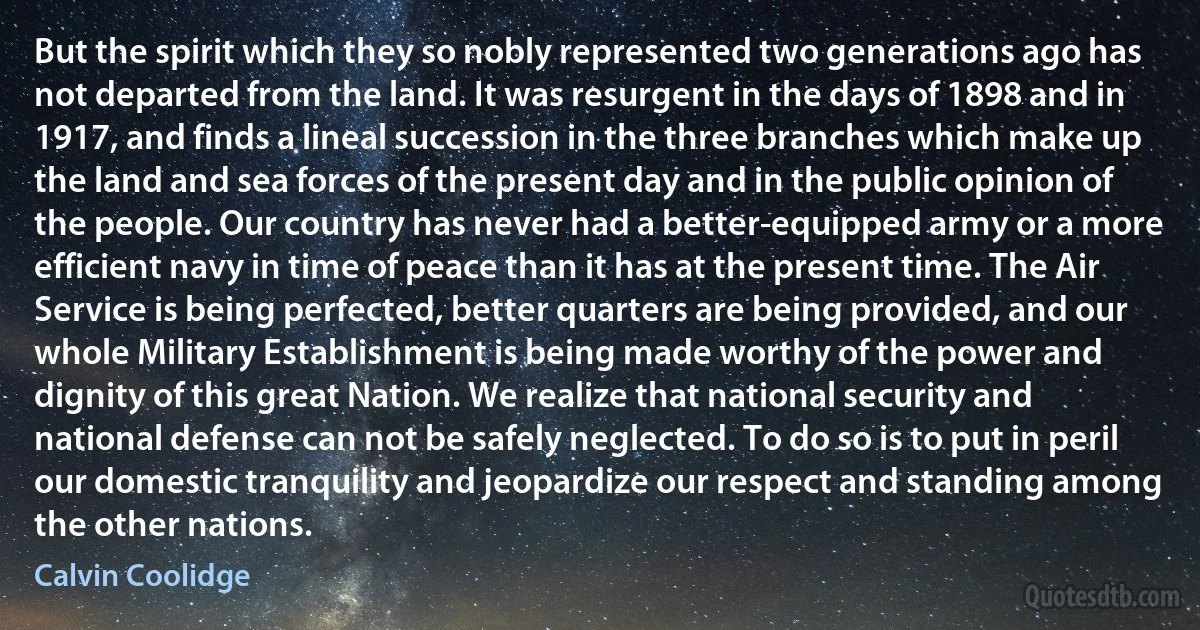Succession Quotes - page 4
Islam proclaims monarchy and hereditary succession wrong and invalid. When Islam first appeared in Iran, the Byzantine Empire, Egypt, and the Yemen, the entire institution of monarchy was abolished. In the blessed letters that the Most Noble Messenger (peace and blessings be upon him) wrote to the Byzantine Emperor Heraclius and the Shahanshah of Iran, he called upon them to abandon the monarchical and imperial form of government, to cease compelling the servants of God to worship them with absolute obedience, and to permit men to worship God, Who has no partner and is the True Monarch. Monarchy and hereditary succession represent the same sinister, evil system of government that prompted the Lord of the Martyrs (Hussain bin Ali -- peace be upon him) to rise up in revolt and seek martyrdom in an effort to prevent its establishment. He revolted in repudiation of the hereditary succession of Yazid, to refuse it his recognition.

Ruhollah Khomeini
The holy man, persuaded that they belonged to some idolatrous people and that in their own language they gave adherence to the Christian faith, invited them to receive baptism.
"I think," said he to them, "that you bathe often, for all the hollows of the rocks are full of pure water, and as I came to your assembly I saw several of you plunging into these natural baths. Now purity of body is the image of spiritual purity."
And he taught them the origin, the nature, and the effects of baptism.
"Baptism," said he to them, "is Adoption, New Birth, Regeneration, Illumination."
And he explained each of these points to them in succession.
Then, having previously blessed the water that fell from the cascades and recited the exorcisms, he baptized those whom he had just taught, pouring on each of their heads a drop of pure water and pronouncing the sacred words.
And thus for three days and three nights he baptized the birds.

Anatole France
[E]lections to the supreme power having upon some occasions produced the most destructive contentions, many states would take refuge from a return of the same calamities, in a rule of succession; and no rule presents itself so obvious, certain, and intelligible, as consanguinity of birth.

William Paley
It is like reading of a land periodically devastated by hordes of lemmings or locusts; it is like turning from the history of a coral reef, in which every act and every death is a foundation, to the depressing chronicle of a succession of castles built on the waste sand of the sea-shore. This is Woodruff on the difference between European history and Indian history. He has chosen his images well. But the sandcastle is not quite exact. The sandcastle is flattened by the tide and leaves not trace, and India is above all the land of ruins.

V. S. Naipaul
Probably the profoundest difference between human and animal needs is made by one piece of human awareness, one fact that is not present to animals, because it is never learned in any direct experience: that is our foreknowledge of death. The fact that we ourselves must die is not a simple and isolated fact. It is built on a wide survey of facts that discloses the structure of history as a succession of overlapping brief lives, the patterns of youth and age, growth and decline; and above all that, it is built on the logical insight that one's own life is a case in point. Only a creature that can think symbolically about life can conceive of its own death. Our knowledge of death is part of our knowledge of life.

Susanne Langer
As a child I scribbled; and my favourite pastime, during the hours given me for recreation, was to "write stories." Still I had a dearer pleasure than this, which was the formation of castles in the air-the indulging in waking dreams-the following up trains of thought, which had for their subject the formation of a succession of imaginary incidents. My dreams were at once more fantastic and agreeable than my writings.

Mary Shelley
Why not make an end of it all?" he asked himself. "Why this obstinate resistance to the fate that is crushing me? It is all very well my forming what are apparently the most reasonable forms of conduct, my life is a succession of griefs and bitter feelings. This month is no better than the last; this year is no better than last year. Why this obstinate determination to go on living? Can I be wanting in firmness? What is death?" he asked himself, opening his case of pistols and examining them. "A very small matter, when all is said; only a fool would be concerned about it.

Stendhal
The human being, on the other hand, is firmly located in a temporal process. He has an image of the past which extends back far beyond the limits of his own life and experience, and he likewise has an image of the future. Closely associated with the time structure of his image is the image of the structure of relationships. Because we are aware of time, we are also aware of cause and effect, of contiguity and succession, of cycles and repetition. The image of man is also characterized by a much greater degree of self-consciousness and of self-awareness than that of the lower animals. We not only know, but we know that we know. This reflective character of the human image is unique, and is what leads to philosophy.

Kenneth Boulding
The old diluvialists were induced by their system to confound all the groups of strata together instead of discriminating,-to refer all appearances to one cause and to one brief period, not to a variety of causes acting throughout a long succession of epochs. ...Under the influence of such prejudices, three centuries were of as little avail, as a few years in our own times, when we are no longer required to propel the vessel against the force of an adverse current.

Charles Lyell
The earliest doctrines of the Indian and Egyptian schools of philosophy agreed in ascribing the first creation of the world to an omnipotent and infinite Being. They concurred also in representing this Being, who had existed from all eternity, as having repeatedly destroyed and reproduced the world and all its inhabitants. ...We have no right to refer to mere chance the prevailing notion that the earth and its inhabitants had formerly undergone a succession of revolutions and catastrophes, interrupted by long intervals of tranquility.

Charles Lyell
In the Greek world in which Homer's songs were sung, it was taken for granted that everyone's life is ruled by fate and chance. For Homer, human life is a succession of contingencies: all good things are vulnerable to fortune. Socrates could not accept this archaic tragic vision. He believed that virtue and happiness were one and the same: nothing can harm a truly good man. So he re-envisioned the good to make it indestructible. Beyond the goods of human life - health, beauty, pleasure, friendship, life itself - there was a Good that surpassed them all. In Plato, this became the idea of the Form of the Good, the mystical fusion of all values into a harmonious spiritual whole - an idea later absorbed into the Christian conception of God. But the idea that ethics is concerned with a kind of value that is beyond contingency, that can somehow prevail over any kind of loss or misfortune, came from Socrates. It was he who invented 'morality'.

John N. Gray
Kuhn's theory suffers from a fatal flaw. It explains the succession from one paradigm to another in sociological or psychological terms, rather than as having primarily to do with the objective merit of the rival explanations. Yet unless one understands science as a quest for explanations, the fact that it does find successive explanations, each objectively better than the last, is inexplicable.

David Deutsch
There is surely nothing other than the single purpose of the present moment. A man's whole life is a succession of moment after moment. If one fully understands the present moment, there will be nothing else to do, and nothing else to pursue. Live being true to the single purpose of the moment.

Yamamoto Tsunetomo
If a player in the game of Deadman's Catch drops a skittle, he is obliged to suffer a succession of handicaps. First to catch using one hand, then to catch kneeling on one knee, then on two knees, then with one eye closed. If a player finally drops a catch with both eyes closed, then he is out and must take his place in the winding-sheet.

Peter Greenaway
Often I think of that excellent painter Monticelli,... when I come back myself from the mental labor of balancing the six essential colors.... sheer work and calculation, with one's mind utterly on the stretch, like an actor on the stage in a difficult part, with a hundred things at once to think of in a single half-hour.
Don't think that I would artificially keep up a feverish condition, but do understand that I am in the midst of a complicated calculation which results in quick succession in canvases quickly executed, but calculated long beforehand. So now, when anyone says that such and such is done too quickly, you can reply that they have looked at it too quickly.

Vincent van Gogh


![Instead of an idea of style, which embraces too many associations, [I] have outlined the idea of a linked succession of prime works with replications, all being distributed in time as recognizably early and late versions of the same kind of action. (George Kubler)](https://cdn.quotesdtb.com/img/quotes_images_webp/44/george-kubler-action-early-297844.webp)
